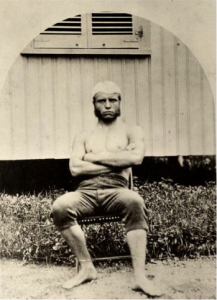This week I read While the World Watched by Wright Thompson and Defenders of Nation Honor: Club Atlético de Cuba Tigres in Prerevolutionary Cuban Gridiron Football by Michael Wood. Both of these articles focus on similar things with national identity but through two different lenses. Thompson focuses on the struggle of playing for your country while your family and friends are being persecuted by a tyrannical government. Wood focused on the brighter side of playing for your country and the pride that comes with it when you can come home after beating someone you had no chance to beat.
Wood at the beginning focuses on the history of Cuba and how they got their independence from Spain and would fall into influence from the US. This is important because when he focuses on American Football he talks about how the Havana YMCA would go on to win a tournament against US competition. They would go on to beat Tulane and this would be a monumental moment for Cubans and would have the country as a whole fired up for this win. This whole article does a great job of highlighting the history of Cuba and why the success they saw in American Football was so important to the people. Even though the success would not last, the mark that it would leave is the important thing to take away from this article.
Thompson focuses on a more tragic story. Thompson focuses on Argentina during the World Cup in 1978. This article is very graphic and really paints the picture of the people living in small prison cells during the World Cup. The torture that went on during this period of Argentina’s history is something that can not be overlooked because you can see it in the reactions of the players and the people who experienced the crazy persecution by the Argentine government. Some of people say that they hate the World Cup because all it reminds them of is the pain that they went through during this time.
I think that both of these articles paint a similar but very different picture and ask the question of what it means to play for your country. Do you play for the people back home or do you play for pride? Thompson’s article really puts this question in a new light because what do you play for when you are not happy in your own country? From my perspective, it is important to see both of these sides to playing on a national team because these are things we can still see today in sports and politics.
